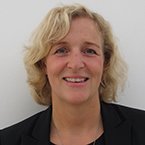
popyconcept - Fotolia
CIO interview: Lone Bundgaard, Coloplast
IT development head at Danish medical products and services company plays core role in major change to how the company engages with its customers
The main focus for Lone Bundgaard, IT development head at Danish medical company Coloplast, is to support the business’ new strategy to reach consumers, rather than just healthcare professionals.
An example of Coloplast’s business is providing products and services for people who are living with a stoma or who cannot empty their bladder or bowels.
Speaking to Computer Weekly at Coloplast’s headquarters in Humlebæk, Denmark, Bundgaard says: “Our goal is to make sure people get a good quality of life, even if they find themselves in a situation where they need a catheter or a stoma bag.”
Since it was founded more than 50 years ago, Coloplast has aimed its marketing efforts at healthcare professionals. “We still have a major focus on them, since they take care of the people we try to help,” says Bundgaard. “But for the last three years, we have a dual focus. The new strategy is called the consumer ambition, and it is all about getting closer to the people who are actually using our products.”
Coloplast’s IT department plays a big part in realising this new strategy, says Bundgaard. “Together with the business, we are defining the processes we want consumers to pass through,” she says. “The most important platforms in this area are the customer relationship management [CRM] and email marketing systems, and their integration with the enterprise resource planning [ERP] system.”
The firm's IT department works closely with the sales team and the consumer marketing team. “I have learned that this set-up is not that common, but we see great benefits from it,” says Bundgaard. “IT should support the business – we are not here for the sake of IT.
“I spend a lot of time talking with my employees about business impact – we are not supposed to be an isolated island. And this holds true not only for the commercial organisation, but for all other parts of Coloplast.”
Commercial roadmap
But the commercial roadmap is what takes up most of Bundgaard’s and her employees’ time. “The consumer ambition is very important to us, and it is here to stay,” she says. “Consumer interactions will only get more and more important. We are the leading company in ostomy and continence products, so it is natural that we take the lead in this development.”
The company's new focus on the consumer is a response to changes in society, says Bundgaard. “Our parents used to ask the doctor, but our generation take action and responsibility themselves. And the products we sell cater to quite private needs, so it is pretty natural that people turn to the internet.”
Read more about Nordic CIOs
- The CIO at Danish wind turbine company Vestas is playing a key role in turning the company into a software supplier.
- Fiskars CIO Frans Westerlund tells Computer Weekly about the challenges faced by IT when a business instigates a major strategic transformation.
- The IT department at Swedish telco Hi3G is on a mission to a utopian planet, with Olivier Smith at the controls.
- Mikko Vastela, the CIO of newly formed Nordic insurance company LähiTapiola, tells Computer Weekly about the importance of informing employees and stakeholders what IT is doing.
- ManpowerGroup Nordic CIO Anna Berggren talks about the importance of IT to the recruitment firm and the different approaches she takes to managing.
Bundgaard and Coloplast's heads of sales and consumer marketing have crafted a shared, commercial roadmap. “It outlines what demands there are on IT, and how we can fulfil them,” she says. “We are very focused on making sure everything is secure and stable around people’s data. For example, when you visit our website to get information, we in IT make sure your information gets from the website to the CRM system securely, so we can provide you with information and samples.”
It is a big challenge to find the right balance between consumer integrity and providing the best possible service, says Bundgaard. “People should be able to trust us to handle their data in a secure manner. For example, when you submit data to a website, you want to be sure the data is not shared. We do our analytics on anonymised data, and we make sure that data moved between different systems is in a secure environment.”
Another big challenge is to balance the wishes and needs of different business areas with high-quality IT delivery, she says. “Our colleagues in the different business areas want things to move fast, to shorten the time to market. But we have to make sure we are doing things the right way, and in a secure manner.
“This is a challenge in all projects, but I think we are good at striking the right balance, because we have such close co-operation and therefore a shared understanding.”
“ People should be able to trust us to handle their data in a secure manner”
Lone Bundgaard,
Coloplast
Coloplast has more than 10,000 staff across 42 countries, and about 140 people work in IT. About 80 of them are in Denmark, 30 at a business centre in Poland, and the rest spread around the world. “We are a global IT organisation and we have the full financial responsibility and full mandate to make the final decisions on IT,” says Bundgaard. “When the business areas have projects involving IT, they turn to us, and we have a dialogue about it.”
Coloplast’s CFO, Anders Lonning Skovgaard, has top-level responsibility for IT, and Bundgaard’s colleague René Rasmussen is responsible for IT infrastructure. “I deal with all business development, new software, and projects with software,” says Bundgaard. ”We are one single IT organisation, so we three work very closely together. René and I perform the daily management, and then we talk with our CFO about strategic matters.”
Full attention
Bundgaard says the benefit of this structure is that she and her part of the organisation can give their full attention to the business. “René's part of the organisation focuses on hardcore IT – they have the more classic IT skills. And then we all co-operate,” she adds.
Bundgaard’s part of the organisation consists of about 50 people, most of them located in Coloplast’s headquarters in Denmark. “But some of my employees are dispersed around the globe,” she says. “The reason for that is simply that we try to use people in the right way, regardless of location.”
Coloplast has also used an outsourcing partner in India for 15 years. “They help us with both user support and development on a number of our platforms, for example ERP, CRM and business intelligence [BI] systems,” she says. “Co-operating with them gives us flexibility to scale up or down, and since they have other customers with similar platforms, they bring in knowledge from them, too.”
Bundgaard is pleased with this set-up, saying that the pros outweighs the cons. “Communications and co-ordination problems can be a drawback with offshoring, but this is a very mature relationship, so those things are not major obstacles,” she says. “We all work together as a team.”









